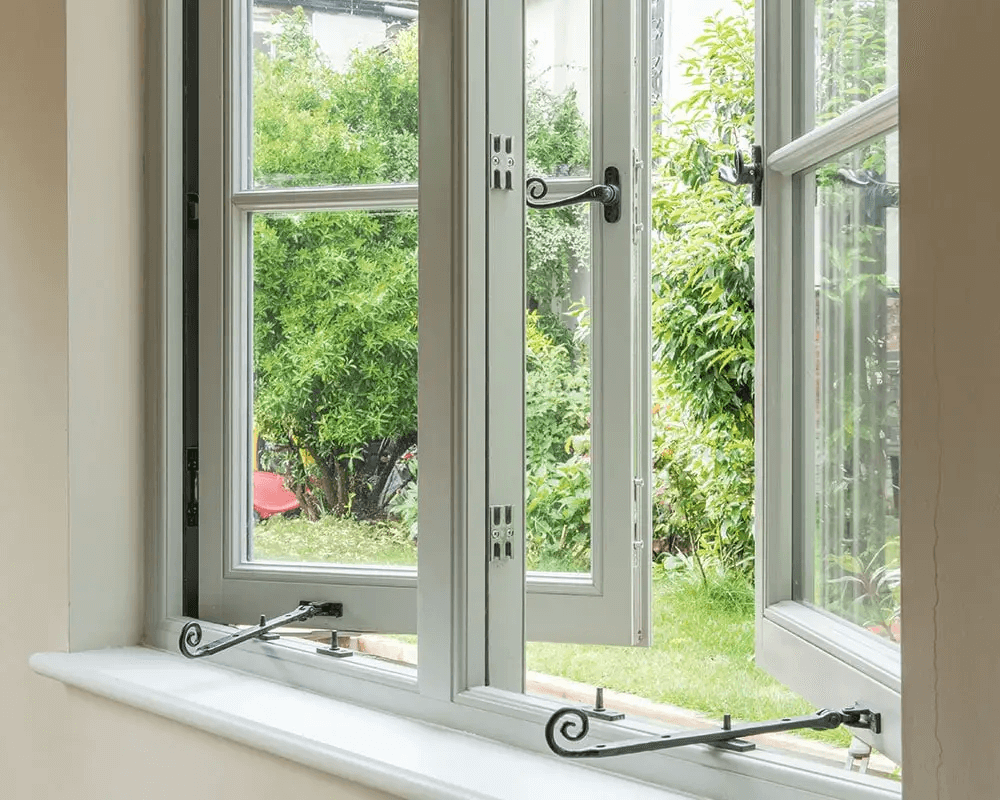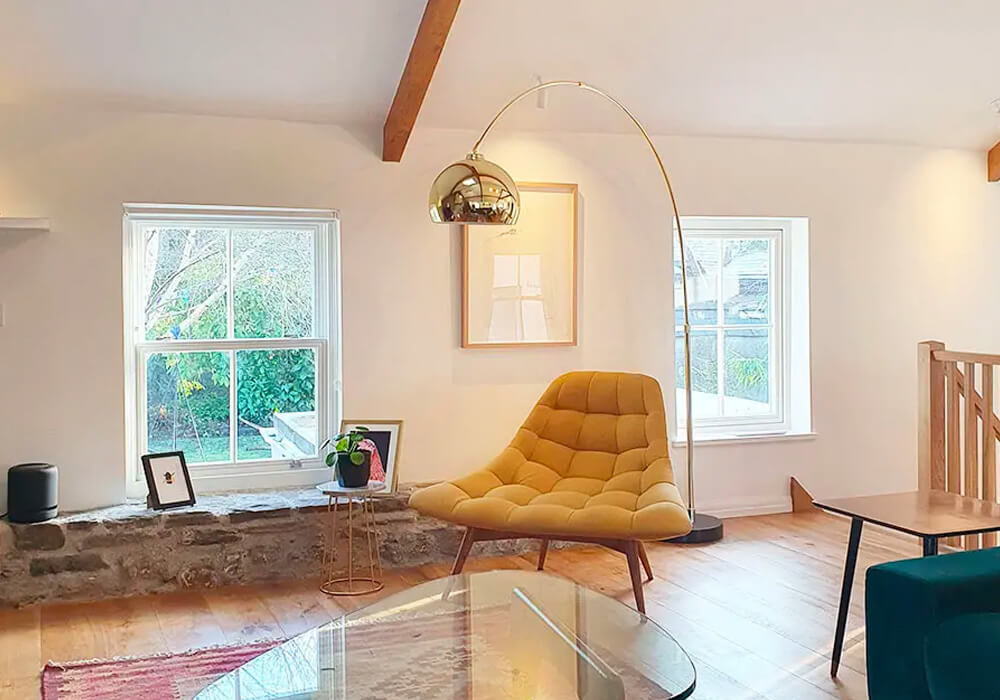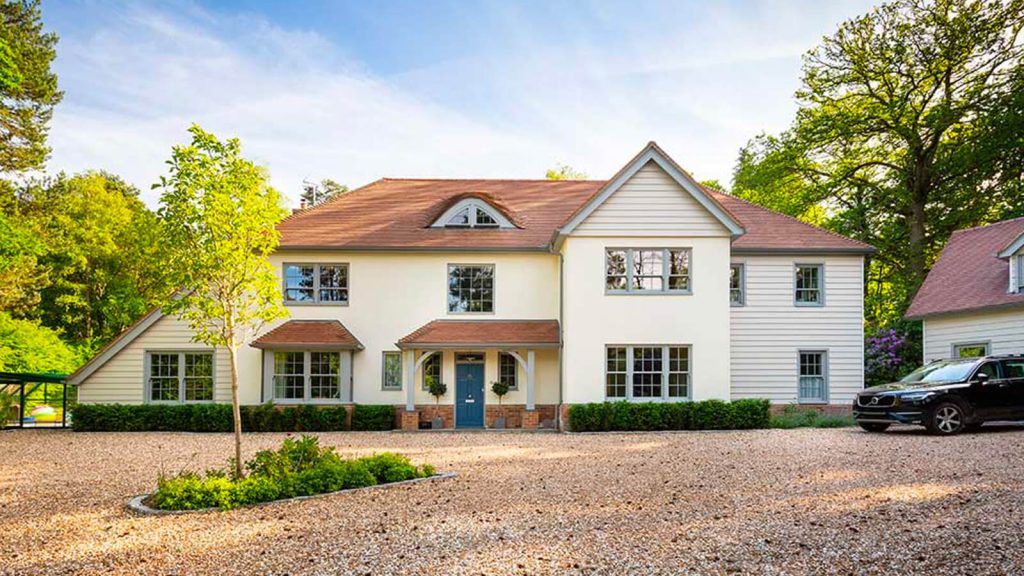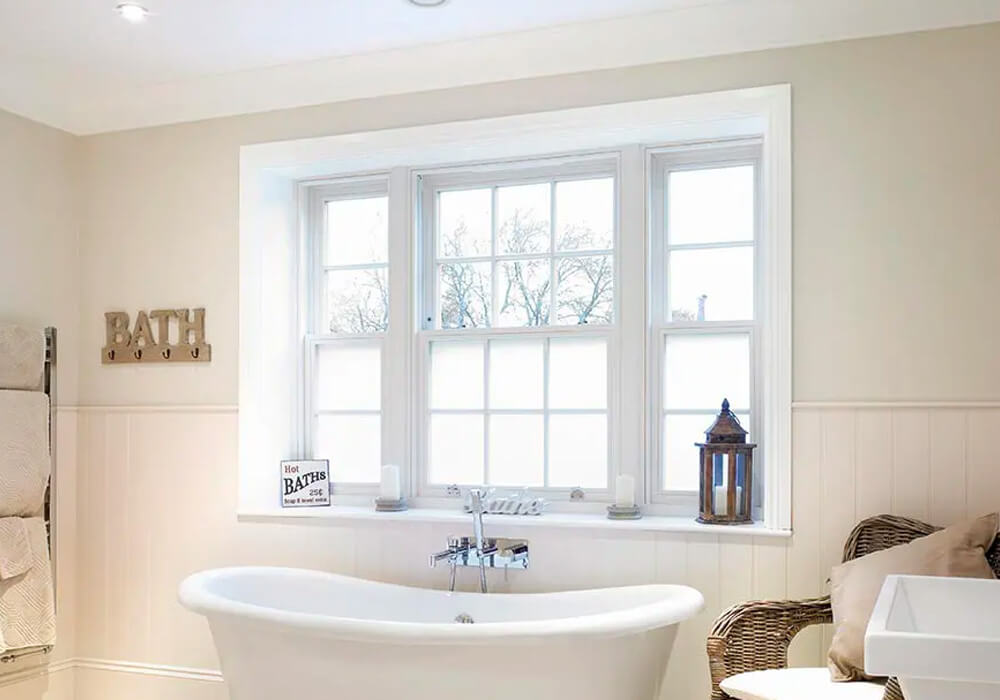Timber vs uPVC windows: exploring why wooden windows are the perfect choice for new builds
July 29, 2024 | Trade | Written by bereco-admin

When it comes to selecting new windows for new build projects, the debate between timber and uPVC has been ongoing for years. As a sustainable and aesthetically pleasing option, timber windows are increasingly becoming the preferred choice for housebuilders, developers, and architects alike.
In this comprehensive guide, we’ll explore the numerous advantages of timber windows over their uPVC counterparts, focusing on their suitability for new build projects. We’ll delve into aspects such as sustainability, energy efficiency, aesthetics, and long-term value to help you make an informed decision and to find the right windows for your next development.
The sustainability factor: why timber surpasses uPVC
The sustainability of building material plays a crucial role in decision making processes and timber windows offer a significant advantage.
Renewable resource
Timber is a naturally renewable resource, unlike modern uPVC which comes from non-renewable petroleum. Plus, timber can be sustainably harvested and replanted, making it a fantastic eco-friendly choice for new builds.
Carbon footprint
Wooden windows have a substantially lower carbon footprint compared to uPVC which is ideal for developers focused on the overall environmental impact of their project. Even when it comes to processing and transportation, timber windows remain a more environmentally friendly option.
End of life considerations
At the end of their lifecycle, wooden window frames can be easily recycled or biodegraded. Whereas uPVC windows that are not properly recycled will contribute to plastic pollution and take centuries to decompose.
Excellent energy efficiency: timber’s natural insulation properties

Energy efficiency is a crucial factor in modern construction and wood windows excel in this area. Here’s why:
Superior insulation
Wood is a natural insulator, providing excellent thermal performance. At Bereco, our timber windows achieve impressive U-values, surpassing UK building regulations, resulting in better energy efficiency and reduced heating costs.
Adaptability to climate
Both double glazing and triple glazing can be incorporated into timber windows to further enhance thermal performance, making them suitable for a wide range of new build projects across various regions.
Reduced thermal bridging
The natural properties of wood help to minimise thermal bridging – the transfer of heat through building elements. This results in improved overall energy performance for the entire building.
Aesthetic appeal: enhancing architectural design
The visual appeal of windows can significantly impact the overall aesthetics of a new build.
Timeless beauty
Timber windows offer a timeless look that complements a wide range of architectural styles. From traditional to contemporary designs, wooden windows can be crafted to suit any aesthetic.
Customisation options
Unlike uPVC, timber windows can be easily customised with various finishes, colours and styles. This flexibility allows architects and designers to create unique, bespoke solutions that enhance the overall visual appeal of new build projects.
Natural warmth
The natural warmth and character of wood adds depth and richness to building facades that uPVC simply cannot match.
Longevity and durability: a valuable investment

When considering the long-term value of windows for new builds, timber offers several advantages:
Extended lifespan
With proper maintenance and care, timber windows can last for up to 60 years, often out living their uPVC counterparts. This incredible longevity translates to reduced replacement costs over the building’s lifetime.
Repairability
Unlike uPVC windows, which often need complete replacement when damaged, timber windows can be easily repaired and refurbished. This is an impressive benefit that not only extends timber framed window’s lifespan but also reduces long-term maintenance costs for property owners.
Weather resistance
Modern timber windows manufactured to a high standard are treated with advance preservatives and finishes that provide excellent protection against the elements.
At Bereco, each section of our timber is carefully treated with a specialist basecoat, before it’s assembled into the window frame to protect against rot, shrinking or warping. It then goes through a three stage, third party accredited finishing process to ensure they can withstand harsh weather conditions. This also helps to maintain their appearance and performance over time.
Value appreciation
Quality timber windows can actually increase the value of a property. Their aesthetic appeal and durability are highly valued in the market, potentially offering a better return on investment compared to uPVC alternatives.
Environmental performance: beyond energy efficiency
While we’ve touched on sustainability, it’s worth exploring the broader environmental benefits of timber frames compared to uPVC frames:
Improved indoor air quality
Timber windows don’t emit volatile organic compounds (VOCs) like some uPVC products can. This contributes to better indoor air quality, creating healthier living environments in new build homes.
Noise Reduction
The natural density of wood makes timber windows excellent sound insulators. This is particularly beneficial for new builds in urban or high-traffic areas, where noise pollution can be a concern.
Regulatory compliance and building standards
Timber windows offer advantages when it comes to meeting the latest building regulations and standards.
Building regulations compliance
High-quality wooden windows can easily meet and exceed current building regulations for thermal performance, ventilation and safety. This makes them an excellent choice for new build properties which must comply with stringent standards.
Conservation area suitability
For new builds in conservation areas, timber windows are often the most popular choice. Their traditional appearance and authenticity align with conservation guidelines more readily than uPVC alternatives.
Future proofing
As building standards are designed to prioritise sustainability and energy efficiency, timber windows are well-positioned to meet future requirements without the need for significant modifications or replacements.
Cost considerations: long-term value

While the initial cost of timber windows may be higher than uPVC, it’s essential to consider the long-term financial implications:
Lifecycle costs
When factoring in longevity, energy savings, and potential property value increase, timber window frames often prove to be more cost-effective over the building’s lifetime compared to uPVC options.
Energy bill savings
The superior insulation properties of timber can lead to significant energy savings over time, offsetting the initial investment through reduced heating and cooling costs. Once again, this highlights how windows manufactured from a naturally insulating material, like timber, can offer the best value in the long-term, making them an ideal choice for new build projects.
Low maintenance costs
While timber windows do require some maintenance, modern finishes have significantly reduced the frequency and complexity of upkeep which is an added bonus for future homeowners. In fact, factory-finished wooden windows need just a light rub-down and re-coat with one or two top coats every eight years or so.
Combine this with the ability to repair rather than replace wooden windows also contributes to lower long-term costs.
Timber vs uPVC windows: why timber is the clear choice for new developments
Ultimately, timber windows offer numerous advantages over uPVC windows to new build projects. From superior sustainability and energy efficiency to unmatched aesthetic appeal and long-term value, wooden windows stand out as the perfect choice for housebuilders, developers, and architects who prioritise quality, performance, and environmental responsibility. By selecting timber, you’re not just choosing a quality home improvement product; you’re investing in the future of sustainable construction and creating homes that will stand the test of time.
As a leading timber window supplier in the UK, we offer an extensive range of high-quality sustainable sourced trade timber windows that perfectly combine modern functionality with traditional aesthetics. No matter whether you opt for trade sash windows, casement windows or tilt and turn, our meticulous construction methods and advanced finishes ensure exceptional thermal performance, dramatically reducing carbon emissions of new builds. We also offer a range of customisation options so you can tailor the window styles and finishes to complement the architectural vision of your project.
Speak to a member of our team today if your new build prioritises sustainability, heritage and lasting value.
